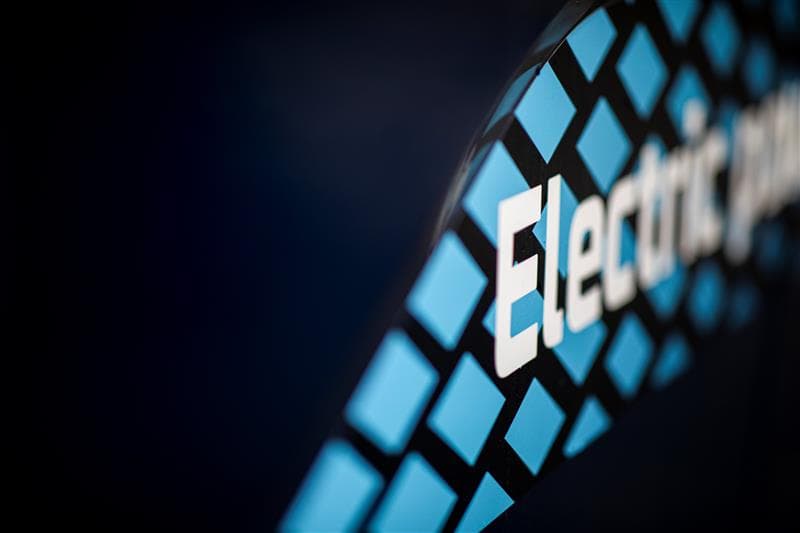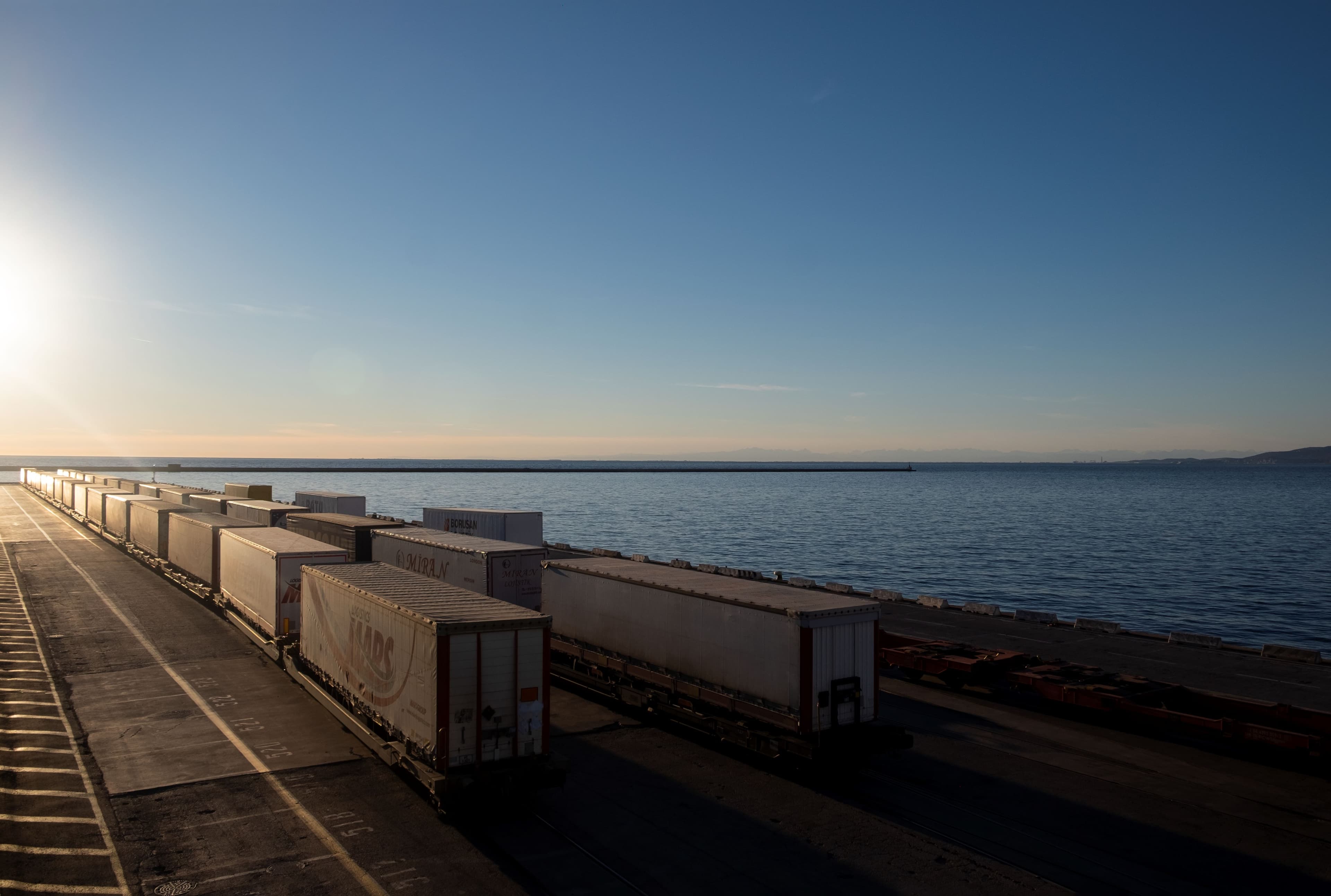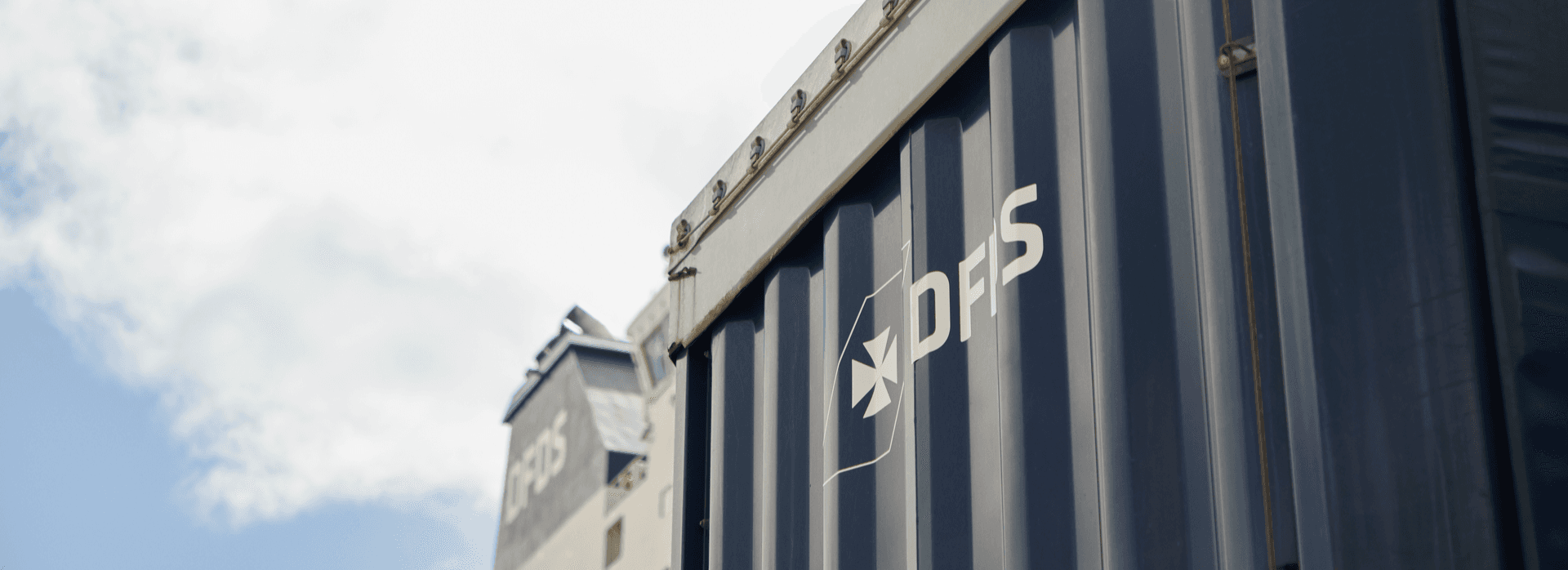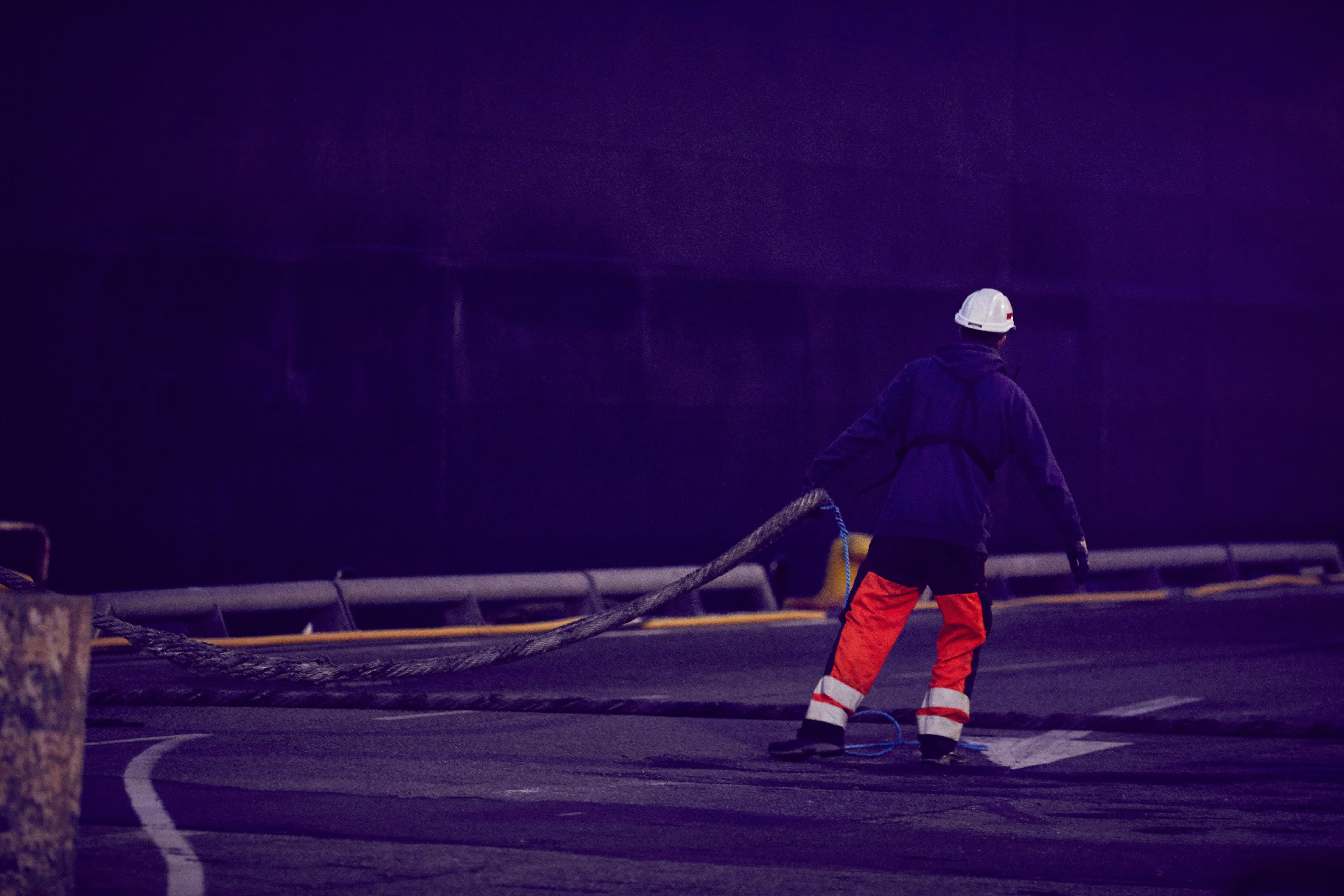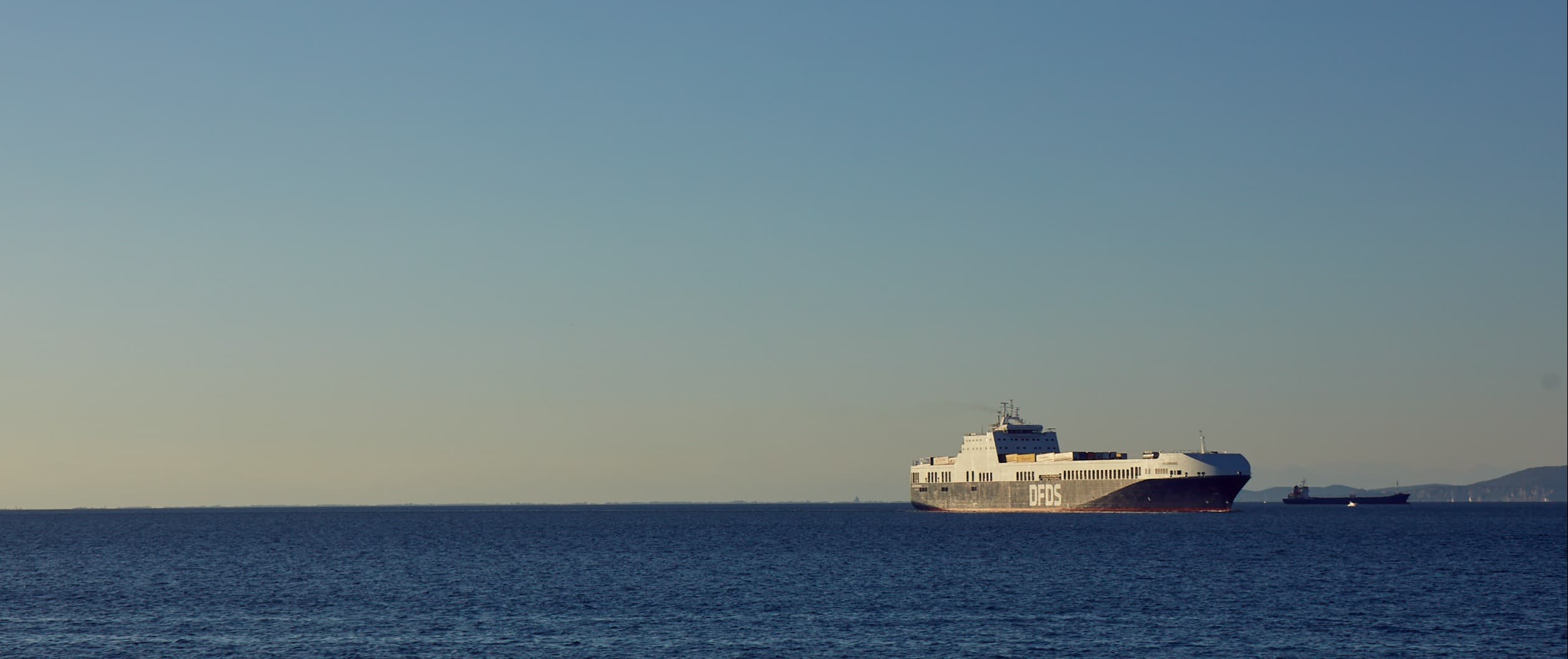A mutual understanding
There is a saying I learnt from a colleague in the UK: “You don’t make a pig fatter by weighing it”. It’s a good point; however, whilst it’s true that reporting on the levels of greenhouse gases emitted in the course of their activities won’t in itself ensure that companies put in the work and investment required to reduce those levels, transparent and robust accounting is a crucial contributing factor for our collective journey to net-zero.
Clearly, targets are meaningless without any way of tracking progress towards them. At DFDS, our decarbonisation vision is ambitious. Despite the complexity of the landscape, we have set ourselves clear, dated goals for emissions reduction in our vessel operation, and our road and land transport and warehousing. In order to ensure we hit those goals, we need to understand where we are in relation to an overall carbon budget between now and 2050; not just year on year, but voyage by voyage, transport by transport, move by move.
Our customers, too, need to understand where they are with us. Our Scope 1 is their Scope 3, and it’s important that we recognise this. That’s why we’ve developed our emissions dashboard, which shows customers how much they emit when they travel with us; we don’t relate it to what they could have achieved with anyone else - we just give them the facts: you transported this much, this far, with us; this caused us to emit this amount; you can now include that in your Scope 3 reporting.
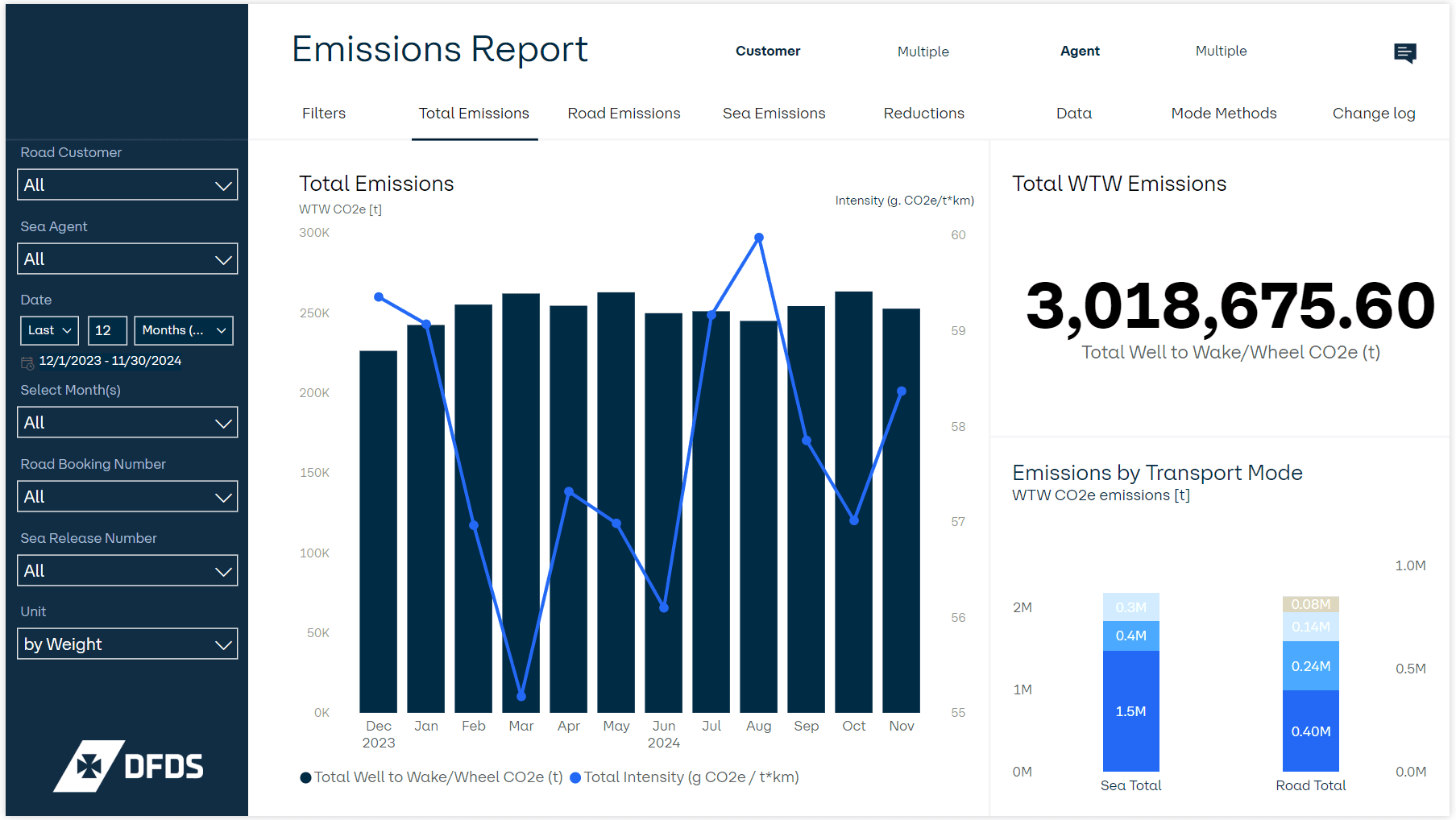
Finding a framework
So far, so straightforward; but of course, as with every other aspect of sustainability, when it comes to emissions accounting there are decisions to be made, each with ramifications to consider. For example, what frameworks should we be using for our reporting, and what factors should they include? For our annual report, which is verified by PwC, we need a process whereby we can input data in a systemic way, and that will allow for in-depth auditing without someone having to go through various self-invented frameworks and data collection systems. Meanwhile, the dashboard has been developed with the intent to make emissions data available to our customers, as they request it (so, live reporting, effectively), using a voluntary industry standard that works across both land and sea, and ultimately feeds into the decarbonisation solutions we offer.
Decarbonisation may be a global undertaking, but the world is not yet aligned in how we measure it (perhaps because it has taken us so long, as an international community, to grasp the significance and scope of the task facing us - and also, because across all the different sectors of domestic, business and industry use, you may as well be comparing apples and oranges most of the time). Even the EU is not internally aligned; reporting the impact of the same biofuel consumption for the EU and IMO requires four different sets of figures, as the table below shows:
Reporting emission on the use of 1000 ton of ISCC EU certified biofuel
WtT (Ton GHG/ton fuel) | TtW (Ton GHG/ton fuel) | Reported Emissions (Ton GHG/1000 ton fuel) | |
EU MRV | not in scope | 2,834 | 2834 |
EU ETS | - | - | 0* |
FuelEU Maritime | -2,304 | 2,834 | 530 |
IMO DSC/CII | 0,6** | 600*Political decision **WtW Interim decision |
WtW = Well-to-Wheel WtT = Well-to-Tank TtW = Tank-to-Wheel
Beyond this, there is the question of the allocation of ‘responsibility’. Is DFDS accountable not only for the fuel it uses, but also, how that fuel is produced (we know we are, but some regulators don’t ‘count’ our upstream emissions)? What about emissions produced by its sub-suppliers? How should the split between Scope 1 and Scope 3 emissions be defined? What about the emerging Scope 4 category? Should we count reductions that result from customers using our vessels instead of a more greenhouse gas intensive transport mode?
Transparency and trust
However the cake is sliced - however the numbers are calculated - everyone involved in the process of decarbonisation agrees on two things: the direction of travel, and the ultimate destination. Greenhouse gas emissions need to go down, and we are aiming for net-zero. So, in one sense, it could almost be argued that the exact figures are irrelevant, as long as they are heading the right way, and at the right rate; because zero looks the same from every angle. That said, integrity and trust matter. We are completely transparent about the frameworks and systems we use, because we want it to be clear to customers, partners and peers, as well as to regulatory bodies, that we are not paying lip-service to the net-zero goal. We want to reach it, not appear to have reached it.
Our customers tell us they appreciate this way of working.
“Knowledge and transparency will fuel the change”
wrote Wolf Arne, Senior Sourcing Manager Logistics Europe at Danõne to DFDS’s Business Development Director, Kasper Hægeland Svenningsen, about his organisation’s interactions with the customer dashboard.
Ready to change
We also want to be sure that we aren’t being lulled into complacency, or a false sense of security, through the accountability frameworks we are using; thinking that we are definitely on the right pathway, but then finding out further down the line that something critical has not been fed into the calculations (for example, as with the wider climate impact caused by the use of LNG, beyond carbon reduction alone). We are constantly revisiting and, if necessary, recalibrating our data, because as we understand more, we may need to change what we are doing.
Finally, we do need to think about this issue holistically; if we are to progress the global conversation about net-zero, and collectively buy into what will be a very different way of living, working and doing business in the future, there must be a way of making meaningful comparisons between DFDS’s emissions reduction, and what is happening not just within the same industry, but across other sectors. We can’t afford to wait for absolute consensus; we have to pick a lane, and get moving. But, even though there may be some differences across frameworks, and where lines are drawn in terms of responsibility, DFDS will always prioritise transparency around its decision-making, alongside a willingness to pivot, should new evidence suggest that its decisions could be improved upon. The alternative - to do nothing - is not an option.
Case study: Geminor
“Measuring Scope 3 emissions is complex and requires transparency in methods and impact statements.
Since our major emissions are related to transport, collaborating with our logistics partners is crucial for decarbonisation.
Through our partnership with DFDS, we are adopting the best industry standards for measuring CO2e emissions in transport and integrating these into the continuous development of our waste transport tracking software - Gemisoft.
Additionally, working with a large-scale company like DFDS allows us to learn from their tools and strategies for progressing towards net zero. This knowledge is invaluable for setting realistic and effective decarbonisation goals.”
Kirstie Jones-Williams, Sustainability Manager, Geminor



